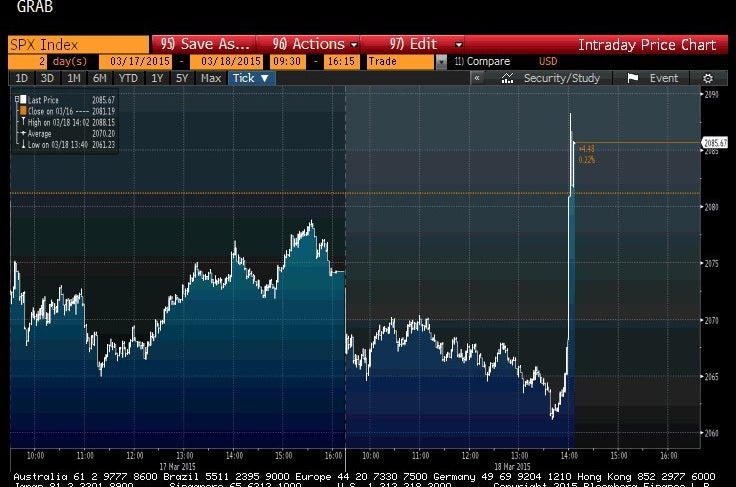
The Federal Reserve said today in its policy statement it would no longer be "patient" before deciding to raise the short-term interest rate it controls; it will instead wait be "reasonably confident" that inflation will hit its 2% target.
Since December, 2008, the Fed has kept the interest rate it controls, the federal funds rate, near zero in an effort to boost the economy. With unemployment at 5.5% and the national economy creating jobs at a steady clip, some observers and Fed officials say that the central bank should consider hiking rates at its June meeting.
In the past, the Fed had said in its policy statements that it would be "patient" before a rate rise. While the Fed has another policy meeting in April, it ruled out raising rates then, calling it "unlikely." Before today's announcement, many analysts and economists expected a rate hike after the Fed's June meeting.
But financial markets appear to think that rising rates could be delayed even more, or at least happen slowly. The S&P 500 went up following the statement, and the euro rose in value against the dollar, partially reversing its long decline going into today's Federal Reserve statement. The euro has weakend this year as the European Central Bank announced a $1.3 trillion bond-buying program and many investors expected monetary policy to eventually tighten in the US.
"This change in the forward guidance does not indicate that the Committee has decided on the timing of the initial increase in the target range," the Fed said.


The Fed also moderated its own expectations for the economy. The Fed's monetary policy making committee lowered their expectation for economic growth in 2015, with the central range of predictions dropping to between 2.3% to 2.7%, down from 2.6% to 3% in December.
Inflation predictions also fell to .6% to .8%, compared to 1% to 1.6% in December. The Federal Reserve's medium term target for inflation is 2%. The Fed said that new data from the last two months "suggests that economic growth has moderated somewhat," pointing specifically to weak performance in housing and slower exports.
